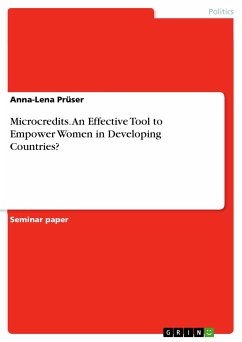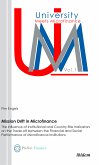Originally conceived as small-scale loans allowing impoverished women to invest in informal sector economic opportunities, microfinance programs have grown rapidly across the globe over the past two decades to become the most common development tool used to empower women in low- and middle-income countries. Women and Microfinance in the Global South incorporates a meta-synthesis of thirty qualitative empirical cases from Asia, Africa, and Latin America to explore the links between microfinance and women's empowerment, questioning how microfinance facilitates the economic and socio-political empowerment of women. The theoretical framework assesses both positive and negative outcomes of microfinance at the grassroots level, considering how such market-based interventions intersect with patriarchal beliefs and practices, and analyses the different mechanisms through which microfinance can empower or disempower women. It will interest scholars of developmental studies and women's issues, as well as practitioners, NGOs, and policymakers.
Dieser Download kann aus rechtlichen Gründen nur mit Rechnungsadresse in A, B, BG, CY, CZ, D, DK, EW, E, FIN, F, GR, HR, H, IRL, I, LT, L, LR, M, NL, PL, P, R, S, SLO, SK ausgeliefert werden.









